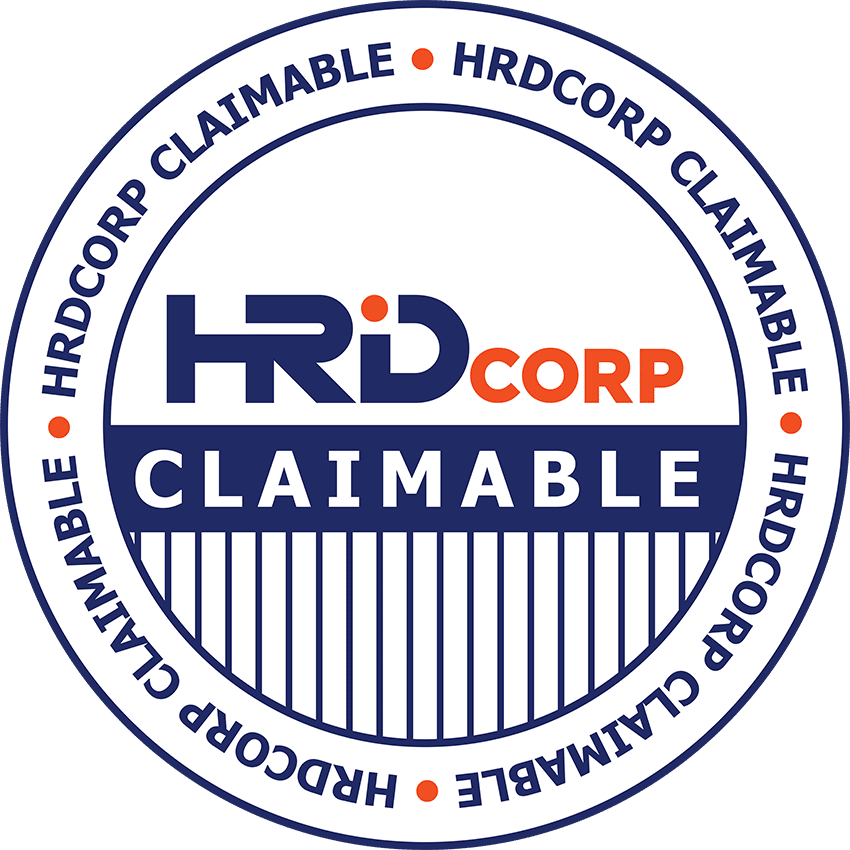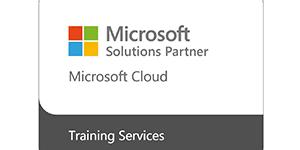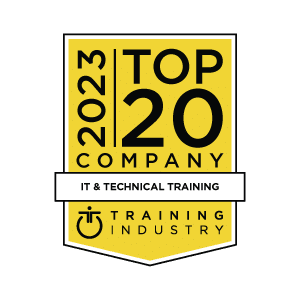Overview
Level up with Microsoft Certified: Azure Data Scientist Associate.
Learn how to operate machine learning solutions at cloud scale using Azure Machine Learning. This DP-100T01: Designing and Implementing a Data Science Solution on Azure course teaches you to leverage your existing knowledge of Python and machine learning to manage data ingestion and preparation, model training and deployment, and machine learning solution monitoring in Microsoft Azure.
Are you currently retrenched? If yes, check out our PERKESO EIS: Get Back into the Workforce through Upskilling program.
Skills Covered
- Manage Azure resources for machine learning
- Run experiments and train models
- Deploy and operationalize machine learning solutions
- Implement responsible machine learning
Who Should Attend
This Azure certification course is designed for data scientists with existing knowledge of Python and machine learning frameworks like Scikit-Learn, PyTorch, and Tensorflow, who want to build and operate machine learning solutions in the cloud.
This Microsoft Official Course prepares students for the Microsoft Certified: Azure Data Scientist Associate certification.
The associated DP-100 exam measures your ability to accomplish the following technical tasks: manage Azure resources for machine learning; run experiments and train models; deploy and operationalize machine learning solutions; and implement responsible machine learning.
Course Curriculum
Prerequisites
Successful Azure Data Scientists start this role with a fundamental knowledge of cloud computing concepts, and experience in general data science and machine learning tools and techniques.
Specifically:
- Creating cloud resources in Microsoft Azure.
- Using Python to explore and visualize data.
- Training and validating machine learning models using common frameworks like Scikit-Learn, PyTorch, and TensorFlow.
- Working with containersTo gain these prerequisite skills, take the following free online training before attending the course:
- Explore Microsoft cloud concepts.
- Create machine learning models.
- Administer containers in Azure
If you are completely new to data science and machine learning, please complete Microsoft Azure AI Fundamentals first.
Download Course Syllabus
Course Modules
Learn how to design a data ingestion solution for training data used in machine learning projects.
Learning objectives
In this module, you’ll learn how to:
- Identify your data source and format
- Choose how to serve data to machine learning workflows
- Design a data ingestion solution
Prerequisites
- None
Learn how to design a model training solution for machine learning projects.
Learning objectives
In this module, you’ll learn how to:
- Identify machine learning tasks
- Choose a service to train a model
- Choose between compute options
Learn how to design a model deployment solution and how the requirements of the deployed model can affect the way you train a model.
Learning objectives
In this module, you’ll learn how to:
- Understand how a model will be consumed.
- Decide whether to deploy your model to a real-time or batch endpoint.
As a data scientist, you can use Azure Machine Learning to train and manage your machine learning models. Learn what Azure Machine Learning is, and get familiar with all its resources and assets.
Learning objectives
In this module, you’ll learn how to:
- Create an Azure Machine Learning workspace.
- Identify resources and assets.
- Train models in the workspace.
Learn how you can interact with the Azure Machine Learning workspace. You can use the Azure Machine Learning studio, the Python SDK (v2), or the Azure CLI (v2).
Learning objectives
In this module, you’ll learn how and when to use:
- The Azure Machine Learning studio.
- The Python Software Development Kit (SDK).
- The Azure Command Line Interface (CLI).
Learn about how to connect to data from the Azure Machine Learning workspace. You’ll be introduced to datastores and data assets.
Learning objectives
In this module, you’ll learn how to:
- Work with Uniform Resource Identifiers (URIs).
- Create and use datastores.
- Create and use data assets.
Learn how to work with compute targets in Azure Machine Learning. Compute targets allow you to run your machine learning workloads. Explore how and when you can use a compute instance or compute cluster.
Learning objectives
In this module, you’ll learn how to:
- Choose the appropriate compute target.
- Create and use a compute instance.
- Create and use a compute cluster.
Prerequisites
None
Learn how to use environments in Azure Machine Learning to run scripts on any compute target.
Learning objectives
In this module, you’ll learn how to:
- Understand environments in Azure Machine Learning.
- Explore and use curated environments.
- Create and use custom environments
Learn how to find the best classification model with automated machine learning (AutoML). You’ll use the Python SDK (v2) to configure and run an AutoML job.
Learning objectives
In this module, you’ll learn how to:
- Prepare your data to use AutoML for classification.
- Configure and run an AutoML experiment.
- Evaluate and compare models.
Prerequisites
None
Learn how to use MLflow for model tracking when experimenting in notebooks.
Learning objectives
In this module, you’ll learn how to:
- Configure to use MLflow in notebooks
- Use MLflow for model tracking in notebooks
Learn how to convert your code to a script and run it as a command job in Azure Machine Learning.
Learning objectives
In this module, you’ll learn how to:
- Convert a notebook to a script.
- Test scripts in a terminal.
- Run a script as a command job.
- Use parameters in a command job
Learn how to track model training with MLflow in jobs when running scripts.
Learning objectives
In this module, you learn how to:
- Use MLflow when you run a script as a job.
- Review metrics, parameters, artifacts, and models from a run.
Prerequisites
None
Learn how to create and use components to build pipeline in Azure Machine Learning. Run and schedule Azure Machine Learning pipelines to automate machine learning workflows.
Learning objectives
In this module, you’ll learn how to:
- Create components.
- Build an Azure Machine Learning pipeline.
- Run an Azure Machine Learning pipeline.
Learn how to perform hyperparameter tuning with a sweep job in Azure Machine Learning.
Learning objectives
In this module, you’ll learn how to:
- Define a hyperparameter search space.
- Configure hyperparameter sampling.
- Select an early-termination policy.
- Run a sweep job.
Learn how to deploy models to a managed online endpoint for real-time inferencing.
Learning objectives
In this module, you’ll learn how to:
- Use managed online endpoints.
- Deploy your MLflow model to a managed online endpoint.
- Deploy a custom model to a managed online endpoint.
- Test online endpoints.
Learn how to deploy models to a batch endpoint. When you invoke a batch endpoint, you’ll trigger a batch scoring job.
Learning objectives
In this module, you’ll learn how to:
- Create a batch endpoint.
- Deploy your MLflow model to a batch endpoint.
- Deploy a custom model to a batch endpoint.
- Invoke batch endpoints.
Request More Information
Training Options
- ILT: Instructor-Led Training
- VILT: Virtual Instructor-Led Training
Exam & Certification
Microsoft Certified: Azure Data Scientist Associate.
The Azure Data Scientist Associate certification validates that you have subject matter expertise implementing and running machine learning workloads on Microsoft Azure. You earn the certification by passing Exam DP-100: Designing and Implementing a Data Science Solution on Azure.
Your responsibilities include planning and creating a suitable working environment for data science workloads on Azure, and you run data experiments and train predictive models. In addition, you manage, optimize, and deploy machine learning models into production.
Training & Certification Guide
Candidates for the Azure Data Scientist Associate certification should have subject matter expertise applying data science and machine learning to implement and run machine learning workloads on Azure.
Responsibilities for this role include planning and creating a suitable working environment for data science workloads on Azure. You run data experiments and train predictive models. In addition, you manage, optimize, and deploy machine learning models into production.
A candidate for this certification should have knowledge and experience in data science and using Azure Machine Learning and Azure Databricks.
This exam measures your ability to accomplish the following technical tasks: manage Azure resources for machine learning; run experiments and train models; deploy and operationalize machine learning solutions; and implement responsible machine learning.
Skills measured:
- Manage Azure resources for machine learning (25–30%)
- Run experiments and train models (20–25%)
- Deploy and operationalize machine learning solutions (35–40%)
- Implement responsible machine learning (5–10%)
When you earn a certification or learn a new skill, it’s an accomplishment worth celebrating with your network. It often takes less than a minute to update your LinkedIn profile and share your achievements, highlight your skills, and help boost your career potential. Here’s how:
- If you’ve earned a certification already, follow the instructions in the congratulations email you received. Or find your badge on your Certification Dashboard, and follow the instructions there to share it. (You’ll be transferred to the Acclaim website.)
- To add specific skills, visit your LinkedIn profile and update the Skills and endorsements section. Tip: We recommend that you choose skills listed in the skills outline guide for your certification.
If you’ve already earned your Azure Data Scientist Associate certification, but it’s expiring in the near future, we’ve got good news. You’ll soon be able to renew your current certifications by passing a free renewal assessment on Microsoft Learn—anytime within six months before your certification expires. For more details, please read our blog post, Stay current with in-demand skills through free certification renewals.
Azure Strategy & Implementation Guide
Get a step-by-step introduction to using Azure for your cloud infrastructure with this Pack e-book. Read the latest edition of the Azure Strategy and Implementation Guide for detailed guidance on how to create a successful cloud adoption strategy with new innovations, capabilities, and security features from Microsoft Azure.
Microsoft Azure SQL Jumpstart Guide
Find out how to get started launching your first Azure SQL database or find ways to make your existing SQL database work harder. Download the Azure SQL Jumpstart Guide for detailed instructions and in-depth insights to help you make your Azure SQL deployment, migration, or enhancement run smoothly.
Low-code Application Development – Microsoft PowerApps and Azure
Build production-ready apps faster with a low-code environment. Quickly stand up your applications with Power Apps and get more time to apply your technical expertise to extending and optimizing those apps in Azure.
Azure Cloud Native Architecture Mapbook
Grow your cloud architecture skills with guidance from Azure Experts. Go beyond developing cloud-native applications to planning and implementing cloud application infrastructure. In this free e-book from Packt Publishing, you’ll find best practices for infrastructure design and patterns for building a complete solution.
Windows Virtual Desktop Security
Find out how to secure your Windows Virtual Desktop environment when migrating your virtual desktop infrastructure (VDI) to Azure. Read this security handbook to get technical hands-on guidance on how to help protect your apps and data in your Windows Virtual Desktop deployment.
Discover how to get more value from your on premises Windows Server and SQL Server investments and move some or all of your workloads to the cloud using your existing skills. See how to start using the cloud to support new ways of doing business and help ensure business continuity even if you need to keep some of your IT assets on-premises due to regulatory or data governance requirements.
Discover how to build highly scalable applications using containers and how to deploy and manage those containers at scale with Kubernetes on Azure. Read the completely reviewed and updated Packet e-book, Hands-On Kubernetes on Azure, Third Edition and discover what’s new, including security enhancements, continuous integration and continuous delivery (CI/CD) automation, and the latest supported technologies. Gain insight into building reliable applications in the new foreword by Kubernetes co-founder Brendan Burns.
Azure Synapse Analytics Proof of Concept Playbook
Learn how to perform a proof of concept efficiently and economically with Azure Synapse Analytics. Read the Azure Synapse Analytics Proof of Concept Playbook to understand the key concepts involved in deploying data warehousing, data lake, and big data workloads with Azure Synapse and get the evidence you need to make the case for implementation at your organization.
Spend less time managing server infrastructure and more time building great apps. Get your solutions to market faster using Azure Functions, a fully managed compute platform for processing data, integrating systems, and building simple APIs and microservices. The Azure Serverless Computing Cookbook will, through the development of basic back-end wep API that performs simple operations, helps you understand how to persist data in Azure Storage services.
Top 7 Data Analytics Certification 2023
Are you looking to level up your career in data analytics? With the increasing demand for data-driven insights in today’s business landscape, obtaining a data analytics certification can be a game-changer.
But with so many options available, how do you choose the best one for you?
Frequently Asked Questions
A data scientist is a data expert who helps collect, analyze and interpret large amounts of data in order to solve complex business problems. They combine statistics, computer science and business acumen to help an organization understand more about itself and achieve its goals. Oftentimes this involves taking messy, unstructured data from a multitude of sources and devising methods for making sense of it, using machine learning, artificial intelligence, and statistical analysis in order to uncover trends and challenge existing assumptions.
Ready to prove your experience and skills in this in-demand role? Take the exam, earn your Azure Data Scientist Associate Certification, and roll up your sleeves to help your organization navigate the fast pace of IT transformation. As a data scientist, you’ll bring the agility, resilience, and actionable insight of AI and Azure Machine Learning to deliver insights, innovation, and results.
Earning a Microsoft Data and AI certification is globally recognized and industry-endorsed evidence of mastering real world skills. It shows you demonstrate proficiency in keeping pace with technology. It’s a career move that yields many positive results.
Getting a Microsoft Certification is also a great way to break into the tech industry. A Microsoft Certification immediately confers a level of authority and expertise, especially helpful for someone new to the industry.
The number of questions on a certification exam is subject to change as Microsoft make updates to ensure it aligns with current changes in the technology and job role. Most Microsoft Certification exams typically contain between 40-60 questions; and around 60-140 minutes.
Starting June 30 2021, all newly earned role-based and specialty certifications will be valid for one year from the date the certification was earned.
To stay up to date, IT pros are constantly learning and adding skills. The IDC study concluded that Microsoft Learning Partners such as Trainocate Malaysia which was recently awarded the 2021 Microsoft Learning Partner of the Year award are well positioned to help organizations achieve their business and learning goals. The IT leaders who were surveyed found the most value from a Learning Partner that provides:
- An end-to-end solution which starts with identifying skill gaps, simplifies the learning experience, and finishes by evaluating how well the Learning Partner met the organization goals.
- Scale, flexibility, and speed to train teams of any size, in any location, amid changing circumstances.
- Value-added services, such as hands-on labs, classroom training, and custom content that help the skills development program succeed.
- High-quality content and delivery, meaning accurate, relevant courseware, top-notch instructors, and a path to certification, if needed.
DP-203T00: Data Engineering on Microsoft Azure
In this course, the student will learn about the data engineering patterns and practices as it pertains to working with batch and real-time analytical solutions using Azure data platform technologies. Students will begin by understanding the core compute and storage technologies that are used to build an analytical solution.
DP-300T00: Administering Relational Databases on Microsoft Azure
This course provides students with the knowledge and skills to administer a SQL Server database infrastructure for cloud, on-premises and hybrid relational databases and who work with the Microsoft PaaS relational database offerings. Additionally, it will be of use to individuals who develop applications that deliver content from SQL-based relational databases.
DP-420T00: Designing and Implementing Cloud-Native Applications Using Microsoft Azure Cosmos DB
This course teaches developers how to create application using the SQL API and SDK for Azure Cosmos DB. Students will learn how to write efficient queries, create indexing policies, manage and provisioned resources, and perform common operations with the SDK.
This Microsoft Azure Enterprise Data Analyst course covers methods and practices for performing advanced data analytics at scale. Students will build on existing analytics experience and will learn to implement and manage a data analytics environment, query and transform data, implement and manage data models, and explore and visualize data.



